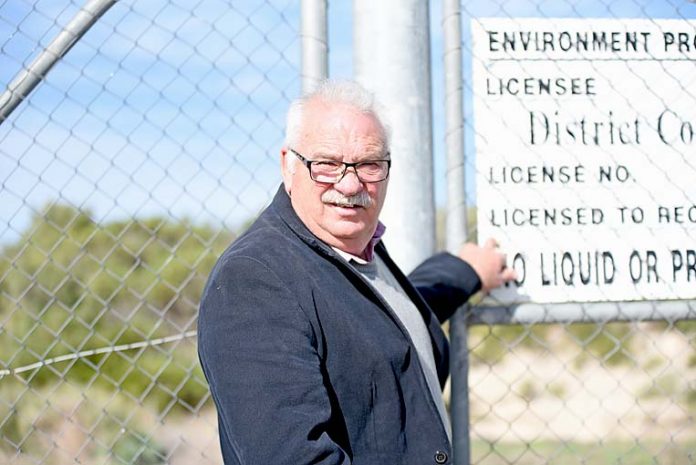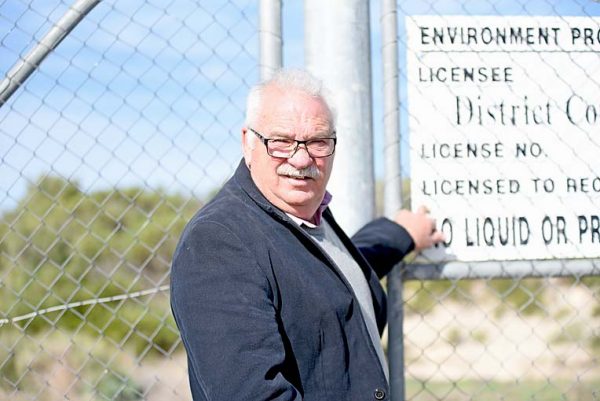

A REGIONAL civic leader has reignited debate over the need for a regional bioenergy plant in the Limestone Coast to potentially solve the plastics recycling crisis and boost electricity supply.
Grant District Mayor Richard Sage has called on regional councils to explore a bioenergy project that would include using surplus wood fibre from the region’s timber sector.
His comments come as the Federal Government earmarks $20m in its 2018/19 budget to fuel new opportunities for wood fibre and renewable products in the national timber sector.
Member for Barker Tony Pasin – who has been a key advocate for the timber sector in Canberra – confirmed yesterday he would push for bioenergy to be part of this plan.
Mr Sage said millions of dollars had been funnelled into the state-based Zero Waste initiative and this money could be used to help build a facility to burn regional waste to generate renewable power.
“The majority of our waste could be burnt – technology around the world has advanced, which means the smoke generated gets returned to the furnace,” the mayor said.
Mr Sage said new technology meant plastics could now be used for bioenergy.
“We need to come together as a region and develop a partnership with the state and federal governments to look at more efficient ways of getting rid of our waste and getting some benefit from it,” he said.
Mr Sage also argued the region needed to take control of its own electricity future given the upward spiral in power costs.
“This project would not only create employment, but would produce cheaper electricity for businesses and households.”
While revealing some investors had canvassed the possibility of establishing a bioenergy plant in the Limestone Coast, he said the region needed to pool its resources to ensure it became a reality.
“It is time we now get more serious about it. The issue of China banning our recycled plastics demonstrates that we need to take control of our own destiny,” Mr Sage said.
“Instead of sending it overseas, we should be utilising it here to produce plastic products in Australia or use it for power generation.”
He foreshadowed cheaper power would also attract more businesses to the region.
Meanwhile, Mr Pasivn – who was yesterday spruiking the government’s 2018/19 budget – said he was a “big supporter” of investigating the possibility of a biomass industry in the South East.
“For over a decade, governments at both state and federal level here and abroad have focused their energy policy around the need to transition to a lower emissions future in the energy sector,” Mr Pasin said.
He said the debate around renewables had been focused heavily – at least in South Australia – on wind and solar as the key renewable sources of energy.
“What has not yet been discussed in this debate is renewable bioenergy sourced from sustainably produced wood waste such as sawdust waste from saw mills or the branches of plantation trees that are not suitable for wood product manufacturing that are left on the ground to rot,” the Liberal backbencher said.
He said there were companies in other parts of the country manufacturing renewable bio-pellets from wood waste and shipping them to Japan, where they were then used to co-fire existing non-renewable (coal and gas) electricity generators, reducing the carbon footprint.
“The South East is in a great position to capitalise on this market possibility,” Mr Pasin said.
The Federal budget includes $20m to support implementation of the National Forestry Industry Plan.
“This plan is focused on growing our industry, including expanding the renewable timber and wood fibre industries to take advantage of global demand for timber products,” he added.
“Biomass is a great story – it’s renewable, its carbon-neutral, it delivers energy at a fraction of the cost of natural gas and importantly for the South East, it creates new market opportunities for our timber industry.
“I would be supportive of a bioenergy plant in the South East if the economic argument stacked up, which is exactly what our National Energy Guarantee aims to do – deliver best value energy based on sound economic principles.”







